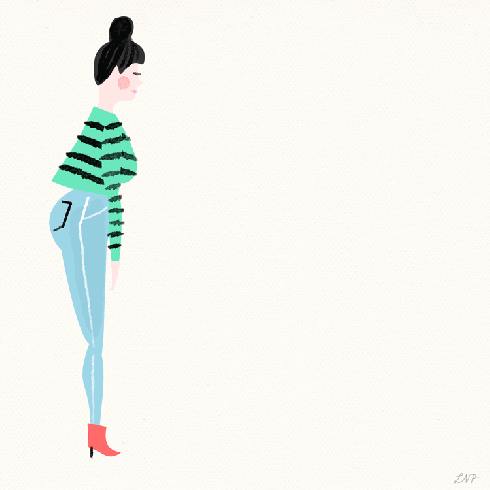I am the fat twin. It's not that I'm fat, just fatter.
I didn't realise the significance of my being a twin until I went to primary school. Until then, we had been dressed differently, been to nursery on different days of the week and had our hair cut into different styles. On our first day of school, it was mum that gave us our first lesson; we were taught to say "No, not 'which one am I' - 'what is my name.' " 15 years later, and that sentence is still one of the most important ones I have ever learned.
I am not one half of a whole. There is no girly twin or pretty twin. The fact that I can do the splits while she can't touch her toes does not make me the flexible twin and the fact that she got her A levels and I didn't doesn't make her the clever one. I am flexible. She is clever. A comparison is uncalled for. Words like 'more,' suffixes like 'er' or even the addition of the word 'twin' or 'one' are totally unnecessary. I am complete on my own.
The idea that I am the fat twin is one I have struggled with. When I tell people that, I’m told; 'You shouldn't compare yourself to her, you're different people'. These are same people who have spent my whole life asking if we are the same shoe size and are astounded by our half a size difference. But for my sister, the struggle is more than that; the fat twin fear has riddled its way through her thick skin and shown itself in the form or anorexia nervosa.
I had my first boyfriend when I was thirteen. We held hands and I think we might have even kissed once. When we broke up he told me 'you look like the shit I just did compared to your sister.' Almost a decade later, it still hurts. That was a particularly injurious hit, but the real damage comes from the repetitive strain. Every single day, I am compared to Jemima, and my insecurities are fed. I worry about whether my choices have been right, given she didn't make the same ones, and whether the person I am is good enough compared with the person she is.
School was an experience. We learned a lot about ourselves and each other. We learnt to laugh when our English teachers competed with our grades. We experienced jealousy and spitefulness when friends were shared. We learnt to fast track the list of questions asked when people discovered we were twins. (Are you psychic? If I punch you will she feel it? Can you share clothes because you’re the same size? My uncle is a twin, do you know him?).
It wasn’t until four years out of that hell hole that we began unlearning and detangling the web we had taught ourselves into in the chaos. We picked at it cautiously to begin with, addressing a huge elephant in the room - one which had been there for years, causing so much difficulty and hurt. We confessed our sins - our monitoring habits and manipulative behaviours, both guilty of dragging down the other to become the better twin, each motivated by our own desperate insecurities. It was a difficult and necessary conversation at the end of which we made a truce. We agreed to be conscious of our bad habits, attempting to crush them bit by bit, day by day.
Bad habits include:
- Making comments out of jealousy/insecurity (“Your legs look like sticks” bitterly translates to “I’m insecure and I feel threatened by your size so I’m dragging you down to make myself feel better”)
- Giving back handed compliments (“Wow, I wish I could fit in that skirt!” = “You should feel guilty and uncomfortable because we are not the same dress size”)
- Monitoring of each others food choices (Passing up on rice with a meal after noticing that that’s what the other has done)
- Deliberately lacking support in life choices out of jealousy/insecurity (dirty looks when the other is going to the gym or for a run)
- Drawing any sort of comparison with the other.
The good news is that now we have a platform on which to call each other out for this kind of behaviour. Some of the examples on this list may shock you - they sound awful (and they are!) but I am sure that if you listened for these manipulative behaviours in your own circles, it wouldn’t take you long to come across them yourself. You might not even have to step out of your own house, or even your own mind! I have found the intensity of the competition amplified by my having a twin, yet it is also apparent outside of a twin setting. Women in particular are taught from a young age to compete with each other, but if we step out of this expectation and instead choose to support one another, to lift each other up, miraculous things will happen. Since the initial confrontation with my sister, changes have happened with me, to my mental and physical wellbeing, to my friendship circles and social life, to my confidence and ability - things I didn’t consider possible for me five years ago. So please be honest with yourself, confront your bad behaviours, and change them.